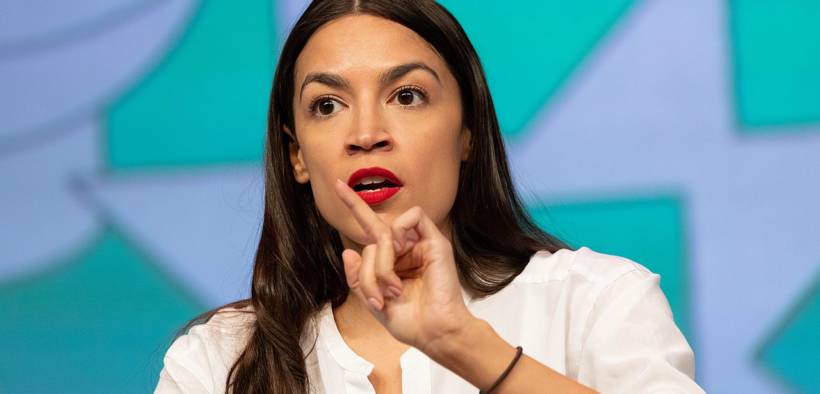No Party for the Left?

Each option has its merits and demerits. Regarding an “insurgency” within Democratic ranks, progressives can, in part, utilize the existing party brand and infrastructure to help attract a following, though in doing so, they risk incurring the wrath of establishment members, notably the “elites” within. Re bypassing the two-party paradigm, progressives aren’t beholden to any “establishment,” but lose the clout a Democratic Party affiliation affords. It also means, in the specific case of forming a new party altogether, that time, money, energy, and people will have to be marshaled and put to work under a single vision. That’s no small task.
In the meantime, the debate rages on. Progressives are earning key victories in Democratic Party primaries, in some cases ousting entrenched incumbents of 10+ terms backed by party leadership. Thus far, however, the upsets have been fewer and further between than many on the left would like or perhaps even would’ve expected, signifying transformative change indeed can be difficult to achieve and slow to realize. The backlash primary challengers and their supporters have faced from party loyalists for merely daring to run against sainted incumbents, too, is a veritable cross for them to bear.
On a theoretical third-party alternative, at this point, a viable challenge to the Democrat-Republican binary is just that—theoretical. The Green and Libertarian Parties are reviled as potential spoilers more than valued as legitimate voting options, especially at the federal level. Meanwhile, the movement for a People’s Party has not translated to electoral gains despite support from notable figures in the entertainment and political spheres like Abby Martin, Chris Hedges, Cornel West, Jimmy Dore, and Oliver Stone. If reforming the Democratic Party from within is a slow burn, starting a party from scratch is downright glacial in its pace (note: this may not apply to the pace at which actual glaciers are melting).
In addition, and at the heart of this piece, while said debate is elaborated, leftists still don’t have a real home. Back in January, speaking an event honoring Martin Luther King, Jr.’s legacy, Rep. Alexandria Ocasio-Cortez stated this outright, remarking, “We don’t have a left party in the United States. The Democratic Party is not a left party. The Democratic Party is a center or center-conservative party.”
By now, if you’ve been paying attention to American politics over even the past five years, you understand ideas like those of AOC’s aren’t absurd and shouldn’t be controversial. Nevertheless, the first-term member of Congress (at least until she officially wins re-election in November) received flak from liberals when, earlier in the same month, she pointed out that, in any other country, she and Joe Biden wouldn’t even be in the same party.
However you perceive her comment—whether as a dig at Biden or not—she’s right. Because of the stronghold the two-party system has on U.S. politics, the likes of Biden and Ocasio-Cortez are forced under the same “big tent.” In Canada, for instance, AOC would at least have the safety valve of the New Democratic Party, led by Jagmeet Singh, rather than being simply lumped in with the Liberal Party of Justin Trudeau. She’d be able to trade her Democratic blues in for NDP orange. Hey, I think she could pull it off!
Despite being a member, AOC has been among the most frequent critics of the Democratic Party and its leadership, particularly that of Nancy Pelosi. Perhaps her most salient observation, though, is not about who calls oneself a Democrat, but what the Democrats stand for. For Ocasio-Cortez and her progressive brothers and sisters, their efforts to reform the party from within aren’t about taking the Democrats in a new direction, but steering them back on course.
As AOC opined back in November, leftists aren’t pushing the party left—they’re “bringing the party home,” citing achievements like the New Deal and the Civil Rights Act as evidence of the Democrats’ past progressivism. To this effect, what they hope to achieve isn’t “radical,” but in line with professed Democratic values, and in certain respects, bringing America in line with the rest of the world (looking at you, single-payer healthcare!). In fact, their policy goals are in accord with what a growing segment of the electorate, chiefly Democrats, want to see their elected officials pursue.
At the end of the day, votes matter. Joe Biden ultimately beat Bernie Sanders in resounding fashion for the nomination before the latter suspended his campaign in April. As Bernie himself conceded, he and his campaign did not make a strong enough case for his “electability,” with primary voters opting for Biden because they perceived him as more likely to get his policy initiatives advanced, they were more likely to have confidence in his leadership, and because they felt he would be better capable of handling the ongoing pandemic (note: all very debatable points).
However, Joe Biden’s comeback victory/misgivings about Bernie Sanders shouldn’t obscure the reality that, in state after state, voters indicated they support policies like Medicare for All and the Green New Deal. At the moment, the Democratic Party might be able to get away with pointing to Biden’s victory as a justification for denying the American people these things. As time wears on and as progressives start notching more victories on their belts, though, these calls for more-than-incremental change will be tough to ignore.
The state of the progressive movement in the United States really feels like an exercise in optimism vs. cynicism. If you look at primary wins against entrenched incumbents for progressives like Alexandria Ocasio-Cortez and Jamaal Bowman, your glass is likely half full. If you look outside the House of Representatives (and with that, outside the state of New York), your glass might be half empty.
I can’t say I consistently feel one way or another, hovering somewhere between half-full and half-empty on the progressive enthusiasm continuum. That more and more people are embracing policy goals like M4A and student debt cancellation (and, more recently, defunding the police and reparations) as part of mainstream political discussion is encouraging, for instance.
On the other hand, that voters will support these initiatives and still vote for the other candidate vowing not to implement them is more troubling, a notion exacerbated by the often-fragmented nature of the progressive moment. In theory, progressivism is, by its nature, meant to be inclusive and intersectional in its applications. In practice, though, factions within leftist spaces can feel like competing forces rather than sympathetic moving parts of the same whole.
Of course, the choice of whether to reform the Democratic Party or watch it burn to the ground and form a new party from its ashes isn’t necessarily an all-or-nothing enterprise. That is, there would appear to be room for progressive Democrats like AOC to try to “bring the party home,” and at the same time, for activists and organizers to pursue other avenues in the service of advancing progressive initiatives, working together on core issues in the process. Yes, that potentially means working with Green and Libertarian Party groups with the expectation that neither side is expected to “convert” the other to its way of doing business. It’s an alliance, not a takeover.
Despite my occasional bouts of bereavement, I ultimately believe progressives will win, broadly speaking. As the saying goes, the hardest part is the waiting. AOC is right: there is no party for the Left in the United States right now. But something has to give eventually and, through all the electoral defeats, the Left’s energy and passion puts it in a better position than the centrists of the present order would care or will allow themselves to admit.







